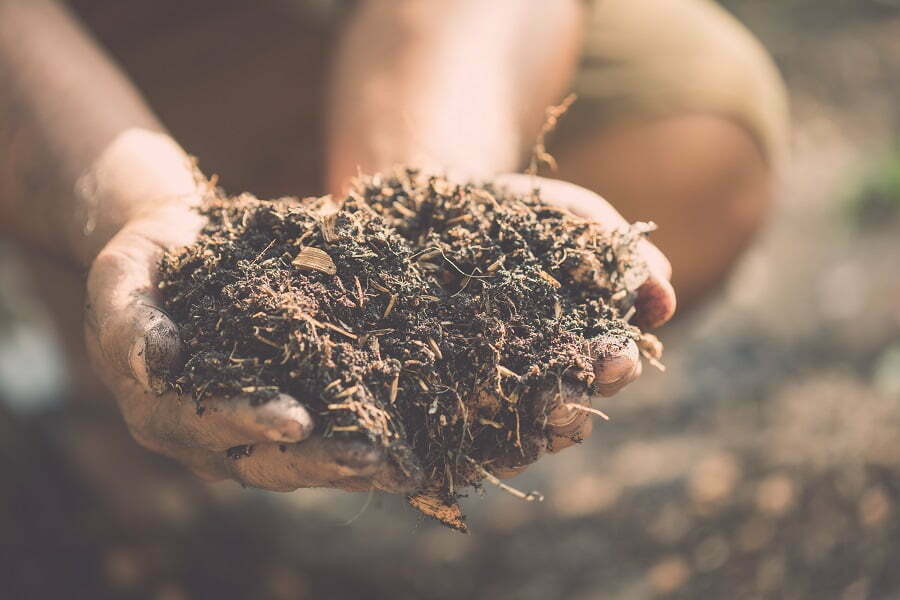Last updated on
Take these four easy steps to buy soil for your garden. The process is simple if you know how to do it. Read on!
Soil is important in your garden whether you want to redesign the landscape, develop your garden, or even your property just requires a lot of mulch, soil, or compost for some reasons known to you.
If this is the case, then it’s a good idea to contact a soil supplier. The good news is that many soil suppliers tend to have enough soil with the best offers.
When you decide to purchase soil, it’s important to determine how much soil you require, know the prices, consider the logistics, and many more. In this way, you will realize that purchasing soil is cheaper and quicker.
This post is a guide to help you in the soil buying process.
Consider the Key Soil Products

In gardening, landscaping, or any other project that needs soil products, you have three key components you need to consider, and these are soil, mulch, and compost. Remember that each of these components needs different applications, but it tends to depend on your project.
One of the things you should consider is the topsoil. Topsoil is ground soil that is at least between 2 and 8 inches. Topsoil can have some organic matter, minerals, and nutrients. You can use this topsoil to top off the plant bed or even mix it with rich organic material.
Then there is compost which refers to the decaying animal or plant matter that can turn into rich nutrient soil. Landscapers and gardeners usually add this compost to the topsoil or even any other soil, like potting soils and garden soil to enrich it with the right nutrients. Compost can also work as a soil fertilizer and it gives better drainage to clay soils. Even better, compost helps the sandy soils to hold the necessary nutrients.
There is a good chance that you may have seen wood chips as an appealing landscaping option in some front yards. This is a type of mulch, but you can also find other options like shredded yard waste of grass and leaves. No doubt, mulch can be attractive and is ideal for discouraging the growth of weeds while offering shade to the undergrowth. Mulch can also cover your soil and assist it to retain moisture that can be lost due to evaporation during summer and gives insulation during winter.
Look for a Local Supplier
When you know the types of soil products you require for your garden, it’s a good idea to check with the local suppliers. The good thing is that these local suppliers are experts at knowing your soil needs. After all, their goal is to serve their communities when it comes to various things like horticulture and agriculture. No wonder, many local hobbyists and gardeners tend to purchase from them in bulk. In other words, they can be your resource and judge what you need for your garden.
That said, it also makes sense to check the soil products before purchasing them. Regardless of whether or not you have a couple of recommendations, it’s a good idea to assess the soil products. You should remember that soil suppliers can have many blends like lawn soil, topsoil, and a compost blend. Some other suppliers can allow you to mix the soil on your behalf, though they may charge an extra fee for doing this.
Sandy loam is good for garden soil. This means you need to look for soil with less than 15% clay and it should have 5% organic matter. The soil should also be crumbly, dark in color, and loose feeling. Also, it needs to have some moisture without forming a hardball when you hold it.
Good compost and topsoil must not have an odor. Instead, it should have a rich and earthy smell, and it should be crumbly and loose. Compost should also not be chunky or coarse. Remember that freshly made compost can still retain some heat, though it must not be hot.
Evaluate the Prices of Soil Products
To make high-quality soil, it needs labor, time, and equipment. And, the price of soil can vary by quality, location, and quantity. In most cases, you can consider the cheapest options, but these products are not screened or enriched. Cheap topsoil or even garden soil that has little or no organic material can be the cheapest option. It’s worth noting that soil prices tend to rise depending on the amount of compost that is added, types of organic materials, and their contents like nutrients or fertilizer.
With mulch, the prices can depend on the type of mulch you decide to buy. For example, if you want to get wood chips, the mulch market depends on the lumber world. And, wood chips from cedar and redwood can be pricier than straw or pine shavings.
The Delivery Plan
When calculating the costs of soil, you should remember to include the delivery fees. Many soil suppliers tend to charge a fixed fee or they can put a charge based on the distance they have to travel. Therefore, to avoid delivery costs, you can consider picking up the soil yourself depending on the amount of soil you need. Many soil suppliers can allow you to drive in with your truck and have the soil funneled or shoveled into your truck.
In most cases, it’s also a good idea to have the soil delivered to you. Therefore, you can tell the soil supplier where you desire the soil places when it arrives. You should note that a truckload of soil can be weighty, so driving on your lawn can damage it. If the ground is wet, it means there are good chances that the truck’s wheels may get stuck or spin.
Therefore, it can be a good option to find a place, like on side of your driveway, and have the soil supplier dump it there. This means you may need to have a wheelbarrow to shovel the soil and move it to another place. It can be hard work to do this, but you can do it at your pace.
If you decide to wait before spreading the soil, then you need to use a tarp to cover it. This is because rain can compact your soil to make it heavier to move it in the future.
Recap:



